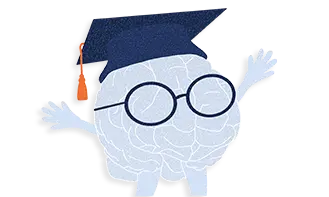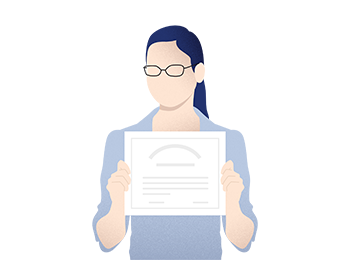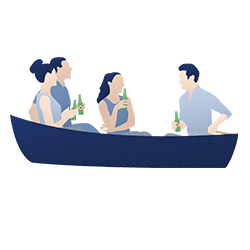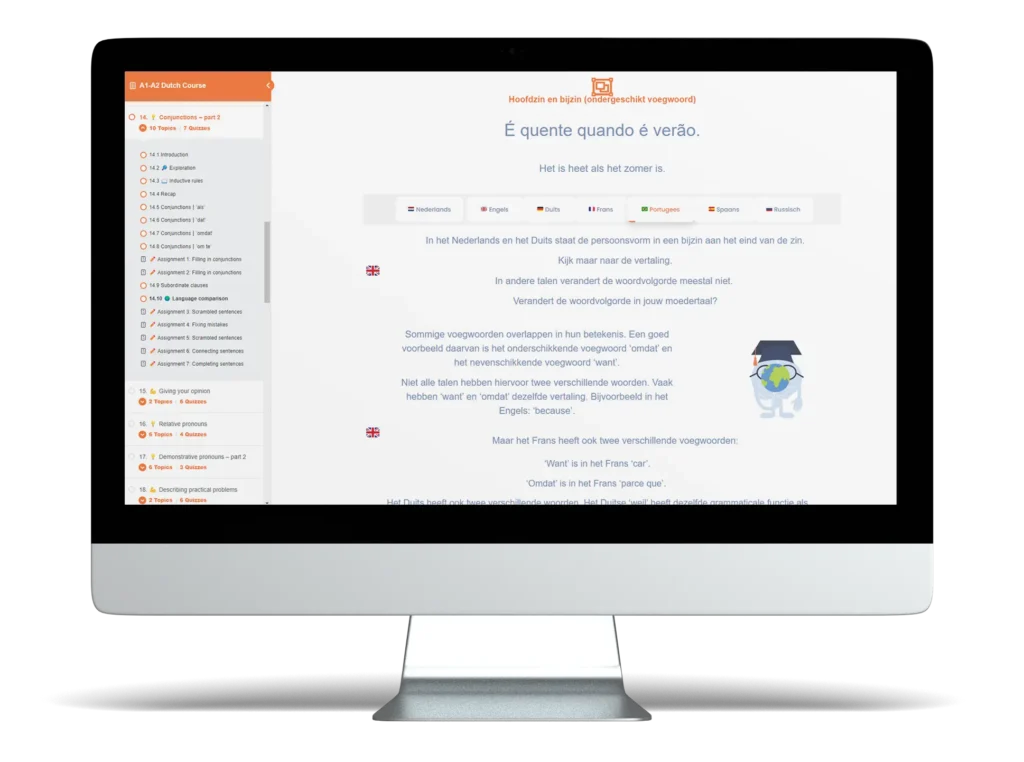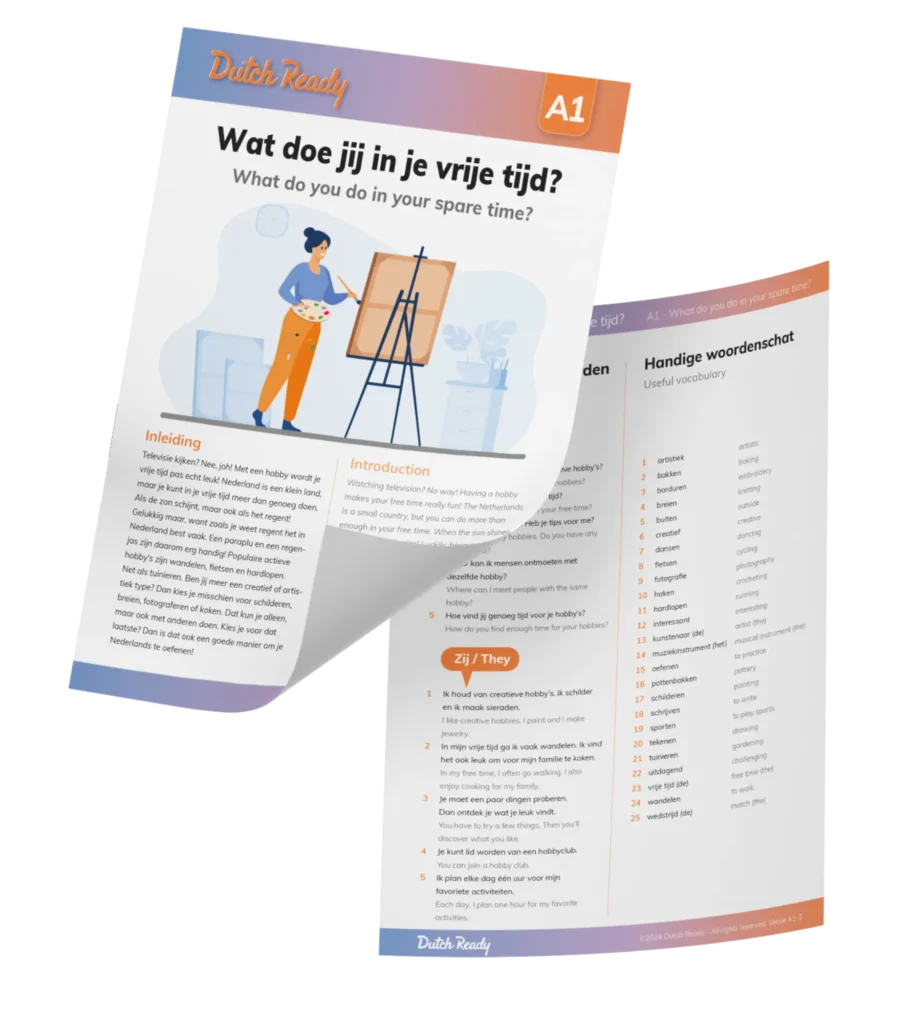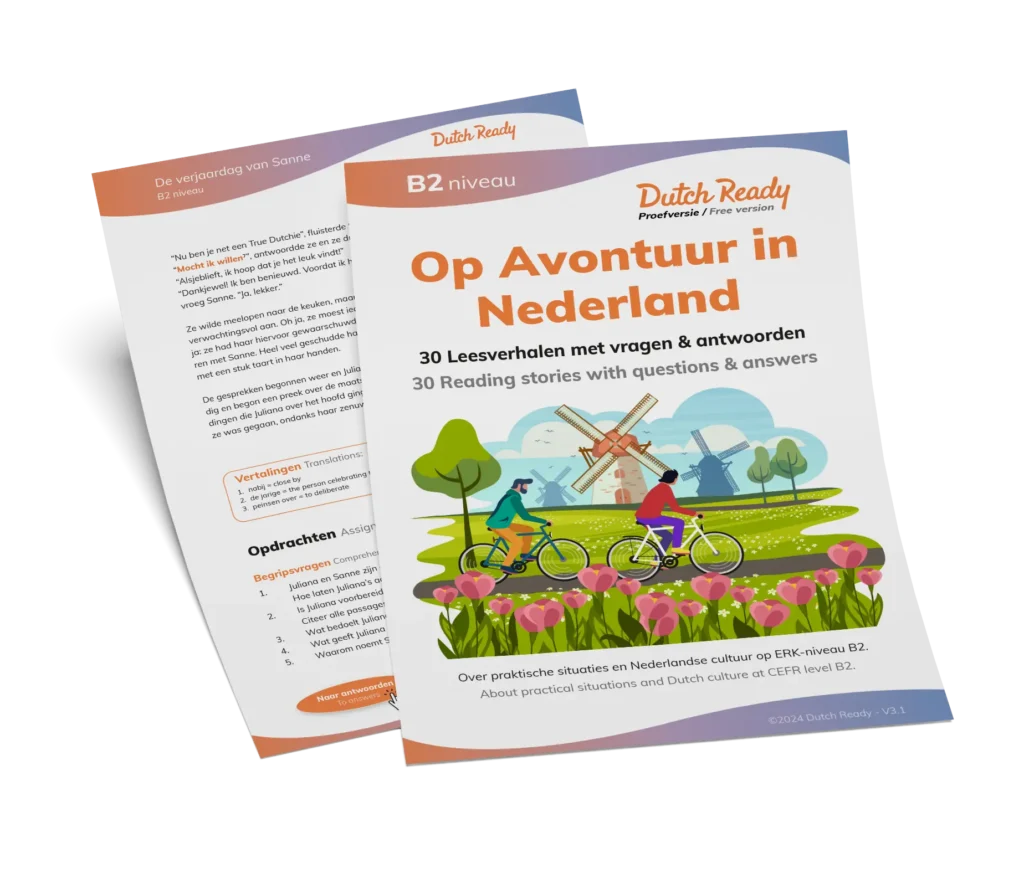Learning Dutch in your sleep
Fact or Fiction?
Going to bed at night and waking up a Dutch genius. Learning in your sleep; it sounds like a scene from a science fiction movie. Too good to be true right? Well, depending on how you ask the question, there’s actually some truth to it. It all has to do with how the brain works and how it stores new information.
Learning without studying?
There have been some amazing stories over the years of people waking up from a coma, suddenly being able to speak or understand a language, at a level that they never had before.
Ben McMahon for instance, had only learned some basic Mandarin in high school. Yet, after waking up from a week-long coma, he was suddenly fully fluent. Even completely forgetting his native English for a few days. The event still baffles neuroscientists to this day. However, a coma might not be a particularly practical way to tackle language learning.
Aside from anecdotal evidence, there has been proper neuroscientific research into learning during sleep as well. However, all of these studies seem to conclude one thing: yes, you can learn during your sleep. But no, it can’t be something you don’t know yet. That sounds contradictory, right? Learning something you already know? How does that make sense?
Learning what you know already
Well, what does it mean to learn something? Is that just seeing the information, or is it actually remembering that information later? I’d argue the latter. So, in a way, learning something always means you’re not just processing new information. You’re making that information accessible later as well. A large part of this learning process actually involves information you already know. Because your brain requires starting points in order to remember information.
Understanding how the brain actually ‘learns’, how it selects and stores new information, will help speed up your Dutch learning dramatically. And yes, that has a lot to do with sleep.
Your brain never sleeps
Your brain stores new information by making connections. Every new thing you learn, you only learn in relation to something else you already know. That’s why learning something new often takes longer in the beginning. You don’t have any other information to relate it to. It’s all new. As you know more and more about something, you can start seeing how things relate to each other. This means your brain is able to make more connections, and so better store that new information.
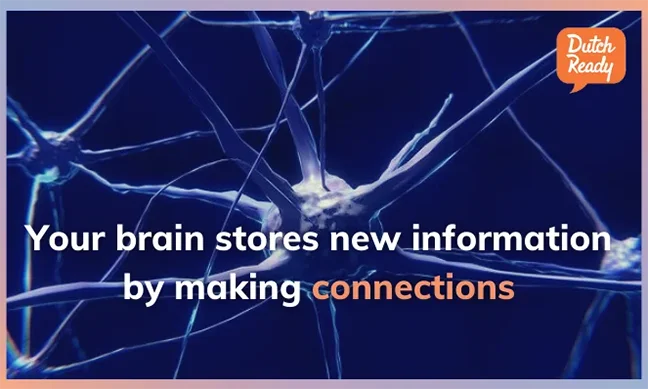
When you learn your first few Dutch words, they might sound and look strange to you. As you learn more and more of them and practice your Dutch pronunciation, you start seeing similarities in sound, spelling or meaning. This makes it easier to remember the new words because you can relate them to something you already know.
For this reason, you’ll often hear the advice of working with mnemonics when studying vocabulary. Mnemonics are memory devices that help you learn new information, often based on sound or meaning. For instance, knowing that the Dutch word for mnemonic, ‘ezelsbruggetje’, oddly translates to ‘donkey bridge’, makes it easier to remember. Actually, mnemonics are nothing more than a way to increase the connections you’re able to make with a new piece of information. And more connections means easier learning. The same is true for all other aspects of language, even grammar.
The hippocampus, in particular, is a brain region tasked with trying to remember everything that happens. As you go about your day, your hippocampus is storing all kinds of information this way, non-stop. Like what you had for breakfast, some new Dutch words you learnt, or the name of that tv-show your friend recommended. Even small things, like where you put your keys are (usually) stored in memory. Once you go to sleep, all that seems like it might stop. But it doesn’t.
Interestingly enough, the brain remains fully active during sleep, even if that activation looks a little different. During sleep, your brain isn’t focused on making new connections. Instead, your brain is deciding which connections to keep. So essentially, what to remember. It strengthens some connections while discarding others. We call this process memory consolidation, and sleep is critical for it to work properly. During sleep, your hippocampus actually replays all the information it stored before. As it does so, it connects that information to other parts of your brain, slowly moving what you learned out of the hippocampus to make room for new information. Any information that’s not critical isn’t moved to the rest of your brain, but simply deleted instead.
Why do you remember something?
There are two factors that are especially important for your brain when it comes to deciding what information to keep, and what information to discard. Namely; how recently something occurred, and how well connected that new information is.
Recency is important because it has to do with continuity. Something you’ve recently encountered is more likely to be used in the near future. If you already forgot the previous sentence, it’s hard to make sense of the next one. Forget where you fell asleep and you’ll wake up in a panic. The longer you go without re-using the information, the less likely you are to remember it. That’s why you can’t remember what you had for breakfast on Tuesday two weeks ago. Yet, you should have no trouble remembering what you ate this morning.
Likewise, if new information is well connected, it often means it is relevant to you personally. After all, it can only connect to something you already remember. The more things it can connect to, the better it fits into your existing knowledge. If you learn something new about a completely random topic, you won’t be able to form a lot of connections. But then again, you most likely won’t need it anymore. However, if you learn something new at work, you can immediately understand why it’s valuable, and how you can use it. You automatically connect the new information to existing information.
Learning Dutch while you sleep
So here’s the great thing, you can actually make use of both of those factors (recency and connectivity) when you’re studying vocabulary. And by doing so, you’ll learn new words much faster than you would otherwise.
First off, make sure you’re getting the benefits of sleep consolidation. This means thinking about how your study schedule interacts with your sleep schedule. Try studying vocabulary in the evening before bed, so that the information is recent. That way it has a higher chance of being consolidated. Self-study using an e-learning module Dutch can come in handy here, because it gives you complete control over when you study. Not really an evening learner? Try taking a short nap (at least 20 minutes) after learning some new words to still get the benefits that sleep brings. It would be a shame to lose your progress because you still have the rest of the day in between. Like we discussed before, recency is important. Don’t let your hard work go to waste.

Additionally, make sure the information is well connected. Don’t just study word lists by themselves. Try to make associations, sound out words, and write them down. Create mnemonics for words you have difficulty with. The more visual and personal the connections are, the better you’ll be able to remember them. You want to try and connect each new word in as many different ways as possible. That way the new information has the best chance of being consolidated.
Curious about more science-backed studying techniques? In that case, our blog post on the best ways to learn Dutch (and how to stick with it) might be for you as well.
Learning something new while you sleep is, for now, still within the realm of science fiction. But making strategic use of sleep and the way the brain processes information does make learning new vocabulary more efficient. Want to get started learning Dutch vocabulary? Download our Core Vocab tool for free from our website and start practicing with the 3000 words that are most often used in daily Dutch life and conversations. And are you a (native) speaker of English, French, or Spanish? In that case, our (also free to download) Easy Vocab tool can come in handy as well. Download the Dutch-English, Dutch-French or Dutch-Spanish version to discover how many words have the same origin and how easy learning new Dutch vocabulary can actually be.
“Slaap lekker!” (Sleep well!)












